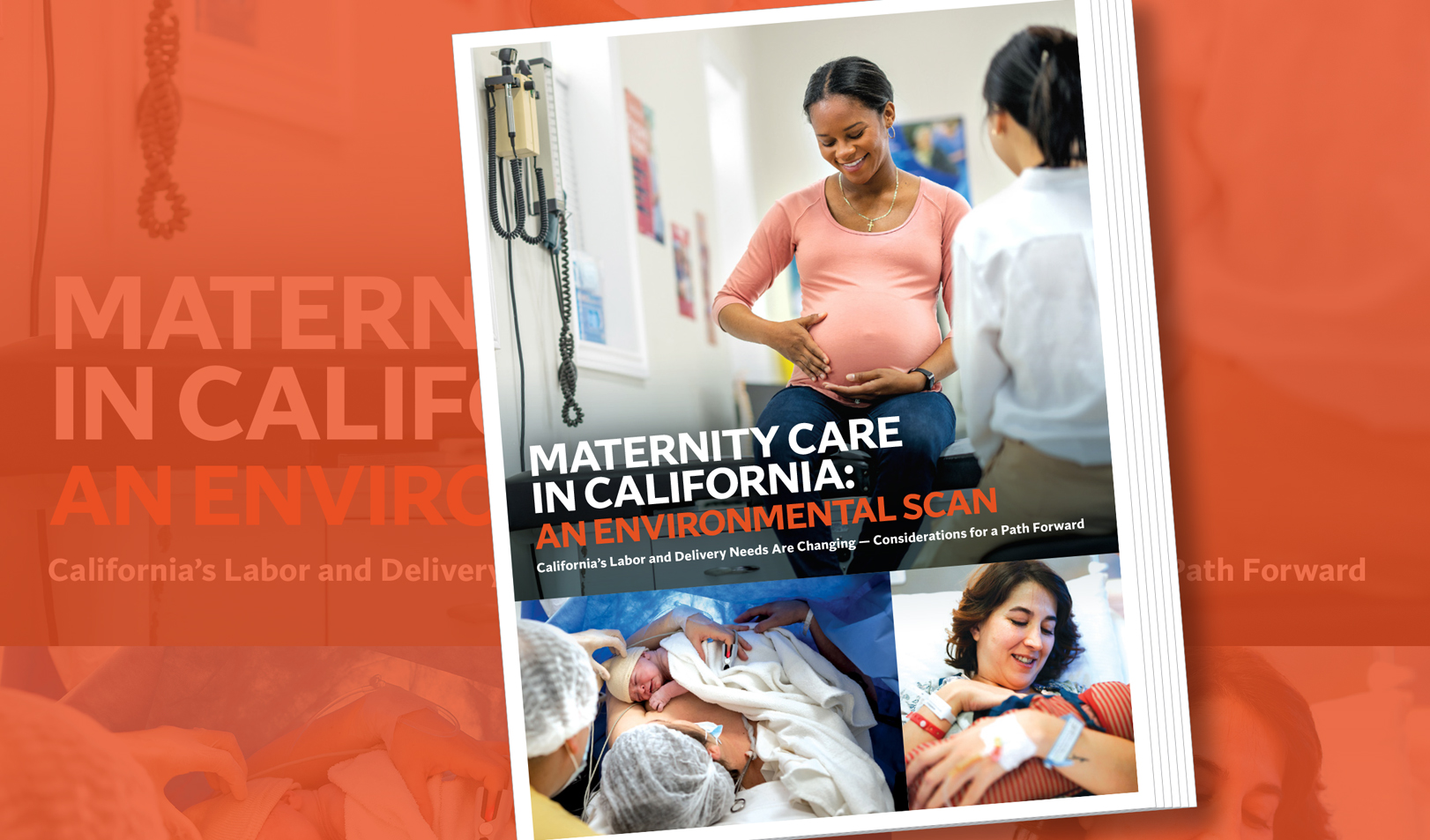The newsroom includes access to CHA News, which provides timely information to members every Thursday and is at the core of CHA benefits. In addition, it is also home to resources such as toolkits and talking points designed to help member hospitals and health systems communicate with internal and external audiences on a range of current health care-related issues. Links to CHA media statements and press releases can also be found here.
Newsroom
CHA Issues OPPS Proposed Rule Summary, DataSuite Analysis
CHA has prepared the attached summary detailing the Centers for Medicare & Medicaid Services’ (CMS) proposed rule addressing rate updates and policy changes to the Medicare outpatient prospective payment system (OPPS) system for calendar year (CY) 2019.
CMS Proposes Significant Changes to Medicare Shared Savings Program
The Centers for Medicare & Medicaid Services (CMS) has issued the attached proposed rule that would make significant changes to the Medicare Shared Savings Program (MSSP) beginning in July 2019. The updated program would phase out tracks with no financial risk for shared losses and offer two accountable care organization (ACO) tracks.
Specifically, CMS proposes a “BASIC track” that would allow eligible ACOs to participate under a one-sided, upside-only agreement for one to two years; after that period, risk levels would be incrementally increased. At the highest level of risk, the BASIC track would qualify as an Advanced Alternative Payment Model under the Quality Payment Program. CMS also would offer an “ENHANCED track” based on the program’s existing Track 3. Both tracks would include agreement periods of no fewer than five years.
The current Track 1, Track 1+ and Track 2 would be discontinued for future applications. CMS proposes a six-month extension for current ACOs with agreements that expire Dec. 31, 2018, along with a special one-time start date of July 1, 2019. Applications for new participation options would be accepted in spring 2019.
CHA Issues Summary of Physician Fee Schedule Proposed Rule
CHA has released the attached summary of the calendar year 2019 physician fee schedule (PFS) proposed rule, which also outlines proposed provisions implementing the third year of the Quality Payment Program (QPP) for physician payment.
The summary provides detailed information on a number of proposed policies, including payment for non-excepted off-campus provider departments, reduced administration burden for evaluation and management services, a reduction of payment for new Part B drugs and the implementation of Bipartisan Budget Act of 2018 provisions related to therapy and telehealth services.
The summary also details proposed updates to the Merit-based Incentive Payment System (MIPS) under the QPP, including an expanded definition of MIPS-eligible clinicians, a reduction of the MIPS measure set and proposed testing of the Medicare Advantage Qualifying Payment Arrangement Incentive Demonstration.
Comments on the proposed rule are due Sept. 10 by 2 p.m. (PT).
CHA will host a member forum on Aug. 30 at 10:30 a.m. (PT) in anticipation of submitting comments.
CMS Provides Updates for Post-Acute Care Quality Reporting
The Centers for Medicare & Medicaid Services (CMS) regularly provides important updates about post-acute care quality reporting programs (QRPs), including training opportunities, public reporting, and reminders of data submission and review deadlines.
Inpatient Rehabilitation Facilities
QRP training
CMS will host two webinars for inpatient rehabilitation facilities (IRFs) on proper coding of Section M Skin Conditions (Pressure Ulcer/Injury) and Section N of the IRF Patient Assessment Instrument Version 2.00. Updated reporting requirements for Sections M and N became effective on Oct. 1 for IRF providers. See the IRF Quality Reporting Training web page for details.
Long-Term Acute Care Hospitals
Provider preview reports
CMS has informed long-term acute care hospitals (LTCHs) that previous provider preview reports for the Discharge to Community – PAC measure contained an error. Preview data released in June 2018 incorporated only seven of eight required quarters of data. Data from October through December 2016 were inadvertently omitted.
CMS has reissued the LTCH provider preview reports, and corrected reports are now available via CASPER system folders. LTCH providers have until Aug. 31 to preview the corrected data in advance of public reporting for the September 2018 LTCH Compare Refresh.
Federal Administration Issues Short-Term, Limited Duration Health Plan Final Rule
Today, the U.S. Departments of Treasury, Labor, and Health and Human Services issued the short-term, limited duration insurance final rule, which finalizes many of the changes in the proposed rule and modifies proposals in other areas. While the three departments finalized the less than 12-month length of the policy as proposed, they changed the total length of the policy to no longer than 36 months in total, taking into account renewals or extensions, based on comments received.
The final rule also retains the requirement that issuers of short-term, limited-duration insurance display prominently in consumer materials one of two versions of a consumer notice explaining the policy that they are purchasing. The departments also strengthened the language required in the notice and included language deferring to state authority. Finally, the departments revised the estimates of the impact of short-term, limited-duration coverage on the individual health insurance market. The final rule is effective and applicable 60 days after publication in the Federal Register. In California, legislation has been introduced — Senate Bill 910 (Hernandez, D-West Covina) — that would prohibit short-term, limited duration health plans from being sold in California.
CHA Highlights Major Provisions of CY 2019 OPPS Proposed Rule
Yesterday, the Centers for Medicare & Medicaid Services (CMS) released the outpatient prospective payment system (OPPS) proposed rule for calendar year (CY) 2019, which also includes payment updates for ambulatory surgical centers (ASCs).
House Ways and Means Committee Holds Hearing on Modernizing Stark Law
Yesterday, the House Ways and Means Committee, Subcommittee on Health held a hearing on the Stark Law. The hearing examined the need to modernize the physician self-referral law, as well as possible solutions that would facilitate the Medicare program’s successful transition to value-based care. Witnesses urged Congress to amend the existing law to reflect modern care practices.
Last month, the Centers for Medicare & Medicaid Services (CMS) issued a request for information on how the Stark Law impedes care coordination and recommendations on how to address its burdens. CHA is soliciting input from members about the request for information; comments are due to CMS by 2 p.m. (PT) on Aug. 24.
CHA Provides Details of CY 2019 Physician Fee Schedule Proposed Rule
The Centers for Medicare & Medicaid Services (CMS) yesterday released its proposed rule updating the Medicare physician fee schedule (PFS) and other Medicare Part B payment policies for calendar year (CY) 2019. The proposed rule includes a number of significant proposals that will impact hospitals and clinicians. While CHA will release a detailed summary of the proposed rule in the coming weeks, key provisions are highlighted below. Comments on the proposed rule are due Sept. 10.
Payment for Non-Excepted Off-Campus Provider Departments: As required by Section 603 of the Bipartisan Budget Act of 2015, CMS pays for items and services furnished at certain off-campus hospital outpatient provider-based departments under a PFS relativity adjuster of 40 percent of the amount that would have been paid for those services under the outpatient prospective payment system. For CY 2019, CMS proposes to maintain the current PFS relativity adjuster at 40 percent.
Evaluation and Management (E/M) Burden: CMS proposes a number of coding and payment changes to reduce the administrative burden and improve payment accuracy for E/M visits. Among the changes, CMS proposes to expand options on how practitioners choose to document E/M visits using medical decision-making or time instead of applying the current documentation guidelines. Practitioners would be allowed to review and verify certain information in the medical record entered by ancillary staff or the beneficiary, rather than re-entering the information themselves. CMS also proposes to establish a new, single blended payment rate for new and established office and outpatient E/M level 2 through 5 visits.
CHA Submits Letter to HHS on 340B Program
CHA has submitted the attached letter to the Department of Health and Human Services in response to the 340B section of its Blueprint to Lower Drug Prices and Reduce Out-of-Pocket Costs.
In the letter, CHA argues that the administration’s focus on the 340B drug discount program as part of a plan to lower drug prices is misplaced. CHA describes the importance of the 340B program in providing essential medications and access to health care for California’s most vulnerable populations.
To highlight the program’s importance, CHA offers specific examples of how California’s hospitals have used the savings from the program to fund vital patient care services — including mobile health clinics, chemotherapy infusion centers, Hepatitis C treatment and inner-city primary care centers.
CHA encourages members to use the letter as a template to submit their own comments. Comments are due Monday, July 16 by 2 p.m. (PT) and may be submitted online.
CMS Requests Information About Stark Law’s Impact on Care Coordination
The Centers for Medicare & Medicaid Services (CMS) has issued the attached request for information (RFI) seeking recommendations on how to address the burdens of the physician self-referral law – also known as the Stark Law – as well as feedback on how the law impedes care coordination. CMS notes it is particularly interested in information about the structure of arrangements between parties that participate in alternative payment models or other novel financial arrangements; the need for revisions or additions to exceptions to the physician self-referral law; and definitions of terminology related to alternative payment models and the physician self-referral law.
Responses to the RFI are due by Aug. 24. Additional information is available on CMS’ website.

